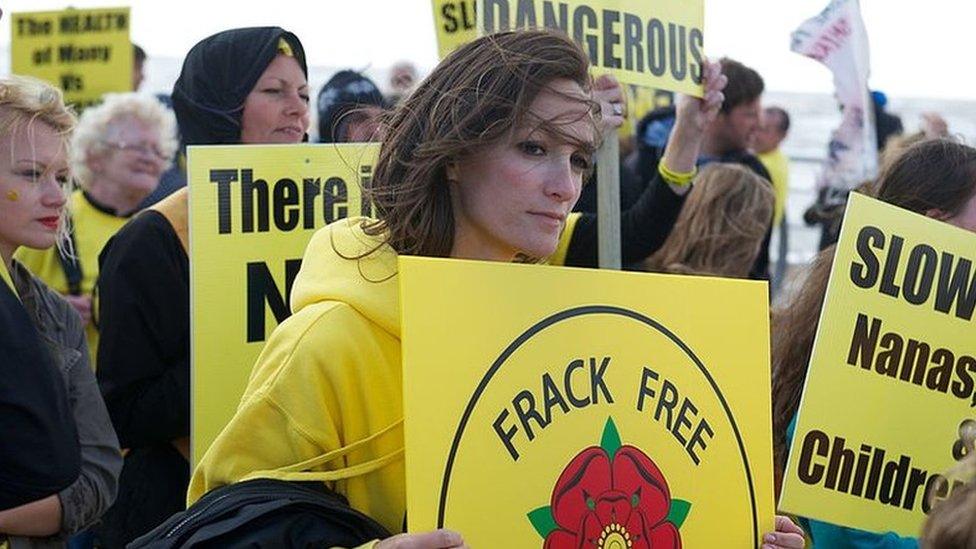Lancashire reaction to fracking ban being lifted
- Published
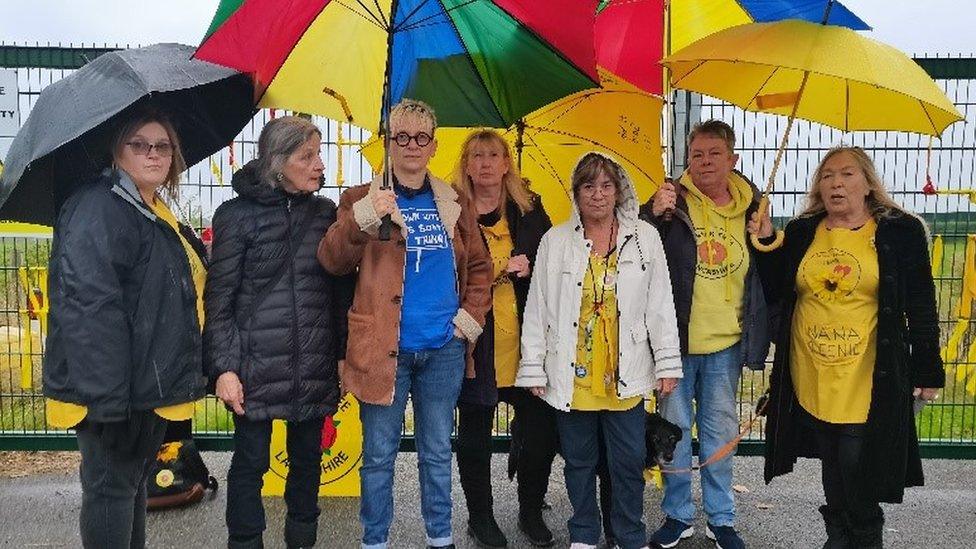
Nanas Against Fracking are "furious" as the government lifts the ban on fracking for shale gas
As the government lifted a moratorium on fracking, what do people in Lancashire near the UK's only shale gas wells think?
It comes as a report by the British Geological Survey, external concluded there is still limited understanding of the UK's shale reserves and drilling impacts.
It was banned after a series of tremors at energy firm Cuadrilla's Preston New Road site, near Blackpool, in 2019.
While those opposed to fracking were "appalled", others welcomed the news.
Fracking involves drilling into the earth and directing a high-pressure mixture of water, sand and chemicals at a rock layer in order to release the gas inside.
The government said on Thursday the moratorium would be reversed to help boost the UK's domestic gas supplies.
Anjie Mosher, from Blackpool, is one of the original Nanas Against Fracking who protested outside Preston New Road until the moratorium was imposed.
"I'm gobsmacked they've had the audacity to do it," she said, from the site where the group have returned following the news.
She said she thought protesting there was all in the past and the news has brought back the "trauma" of it.
Fracking "destroys lives and the land", she said, but the government "don't care about communities".
She added: "How will they dispose of the dangerous waste?"
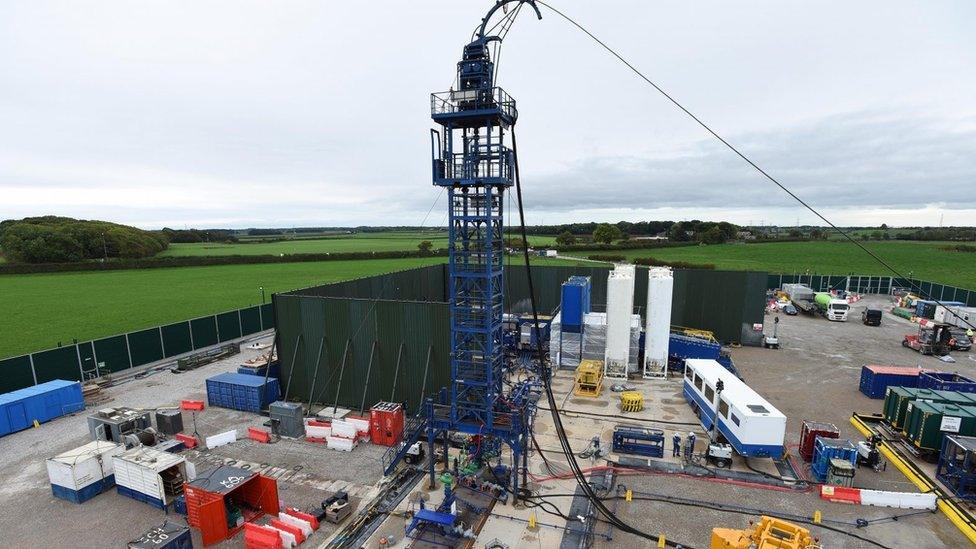
Cuadrilla says fracking could create to jobs across the North of England and tackle rising gas prices
Simon Hinks, who works in the energy industry and lives three miles (4.8km) away from the Preston New Road site, said it was great news.
He said the move could bring in "much needed gas flowing into the national grid within the next six months".
"Why import gas from Australia rather than from one mile under our feet which is beneficial environmentally and financially?
"It will bring millions of pounds into the local economy and the Treasury."
Claire Stephenson from Frack Free Lancashire said: "We've witnessed more than 10 years of attempts to jack gas out of the ground in Lancashire, with no progress.
She said there have been "uncontrollable earthquakes and structural damage", as well as "colossal methane leaks, community disharmony, and most notably zero commercial gas produced".
"We're in a climate crisis with a desperate need for a clean, green energy future," she added.
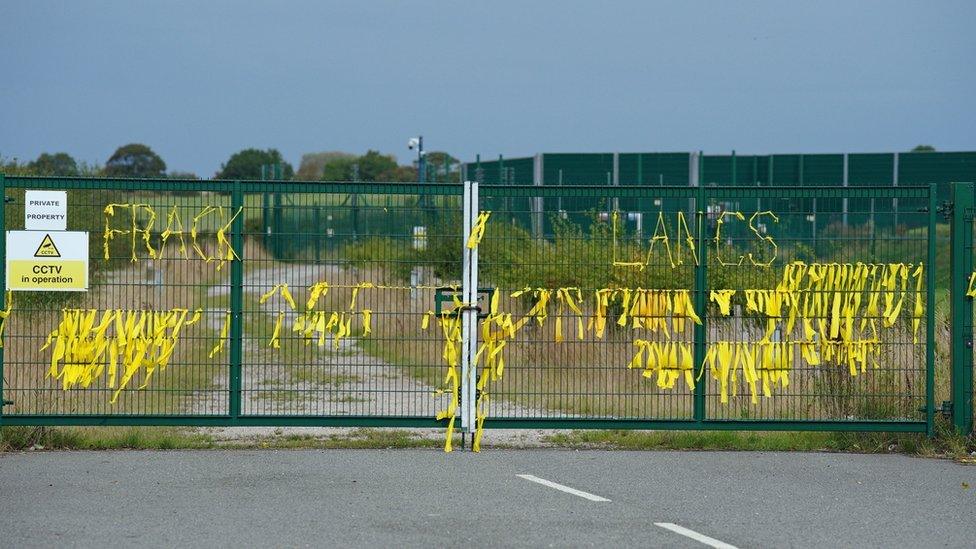
A moratorium was imposed on fracking in 2019
Using the situation in Ukraine as an "excuse" was "appalling", Ms Stephenson said.
Meanwhile, in neighbouring Greater Manchester, the region's mayor Andy Burnham told BBC Radio Manchester it was "bad news" and a "very divisive policy" with the risks associated with fracking.
He said: "It won't release energy to sort out the cost-of-living crisis, it won't be able to be done that quickly", adding there "aren't that many jobs in it".
Mr Burnham added Greater Manchester has a policy of a ban on fracking and would be prepared to a "stand off" with the government about the issue.
Cuadrilla said local communities "stand to benefit most" from the announcement.
"Cuadrilla is determined that a portion of all shale gas revenue should be delivered to local residents as a community dividend," Francis Egan, chief executive of the firm, said.
"This would mean each producing shale gas site could generate potentially hundreds of millions of pounds for local households, families, and communities."
He added it would drive job creation in the north of England and would generate "much needed tax revenues for central and local government, and help tackle spiralling gas prices".
'Higher risk'
Business and Energy Secretary Jacob Rees-Mogg said: "In light of [President Vladimir] Putin's illegal invasion of Ukraine and weaponisation of energy, strengthening our energy security is an absolute priority".
He added "tolerating a higher degree of risk and disturbance appears to us to be in the national interest given the circumstances."
Fylde's Conservative MP Mark Menzies, who previously said fracking was a "danger to the public", has vowed "to continue to fight on behalf of our local communities".
In a heated exchange with Mr Rees-Mogg in Parliament, he asked for an explanation of how the local consent Prime Minister Liz Truss said new sites required will be judged.
Mr Rees-Mogg suggested it would be for fracking firms to offer compensation packages to "make what they are proposing to do welcome to local communities".
Posting on Facebook, Mr Menzies later said he was "disappointed his response gave no clear answers".

Why not follow BBC North West on Facebook, external, Twitter, external and Instagram, external? You can also send story ideas to northwest.newsonline@bbc.co.uk, external
Related topics
- Published22 September 2022
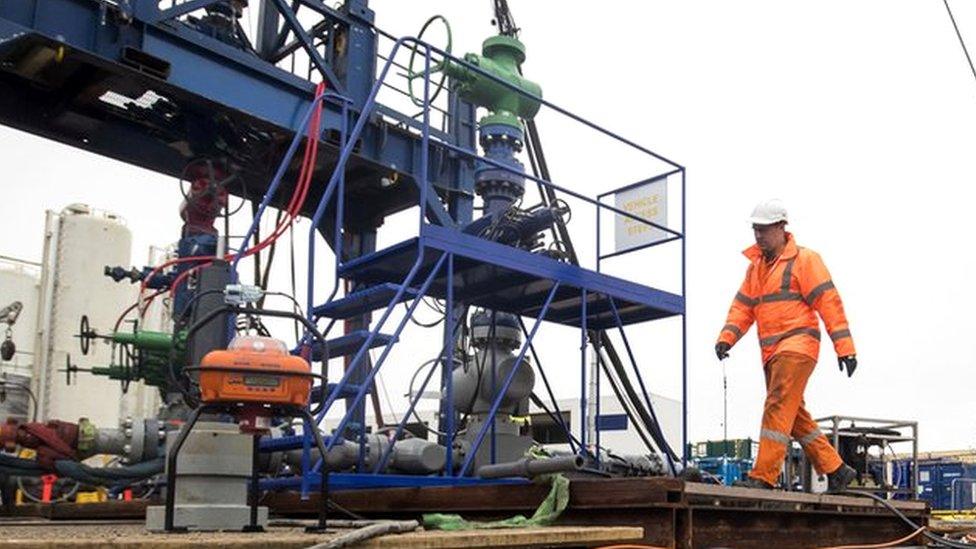
- Published8 September 2022
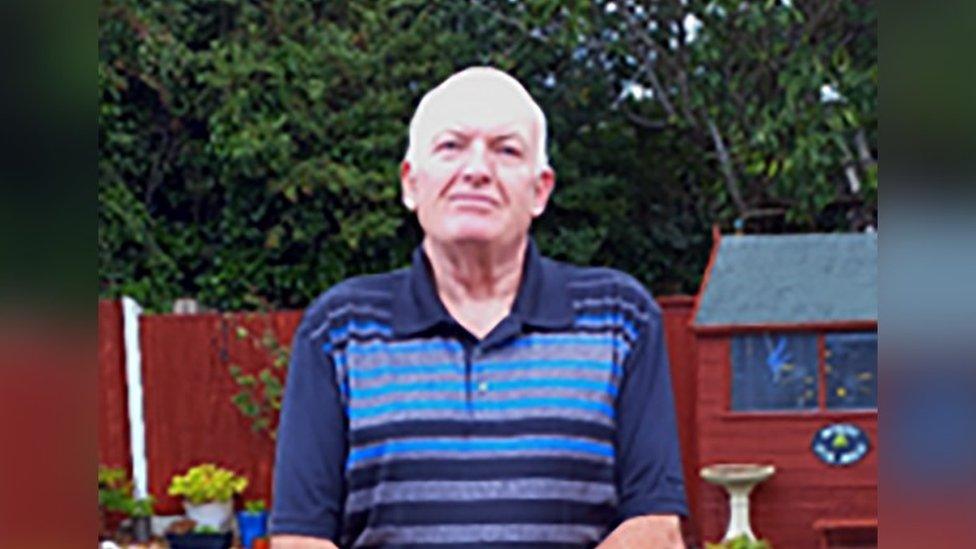
- Published8 September 2022
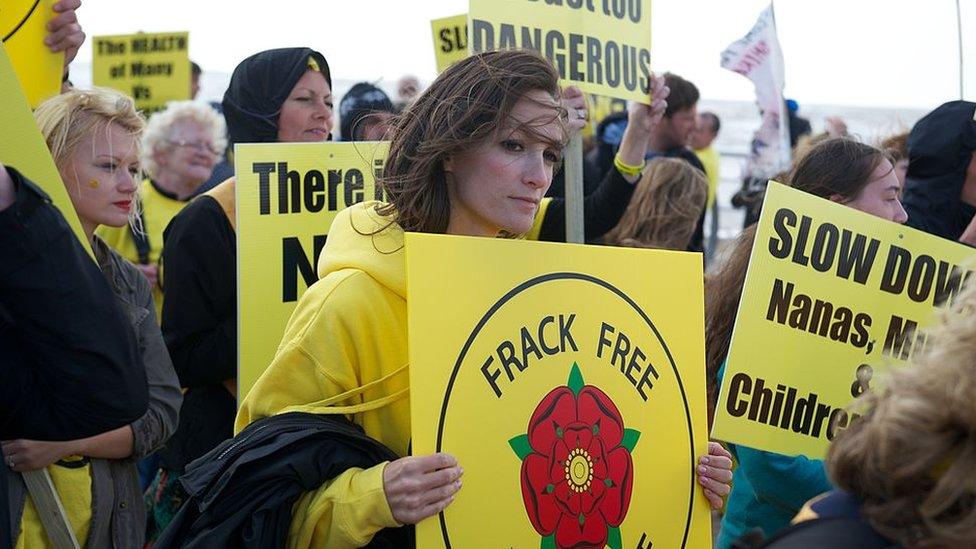
- Published5 April 2022
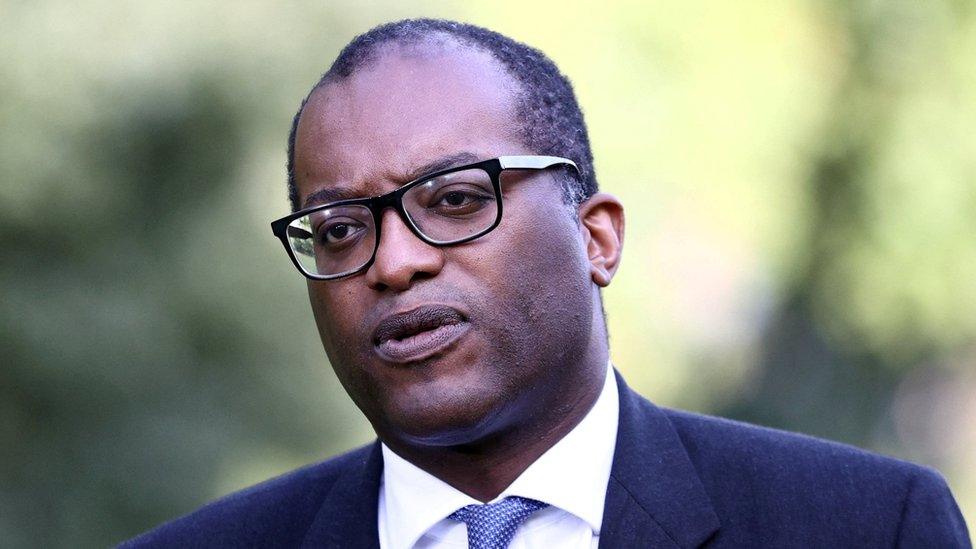
- Published1 September 2019
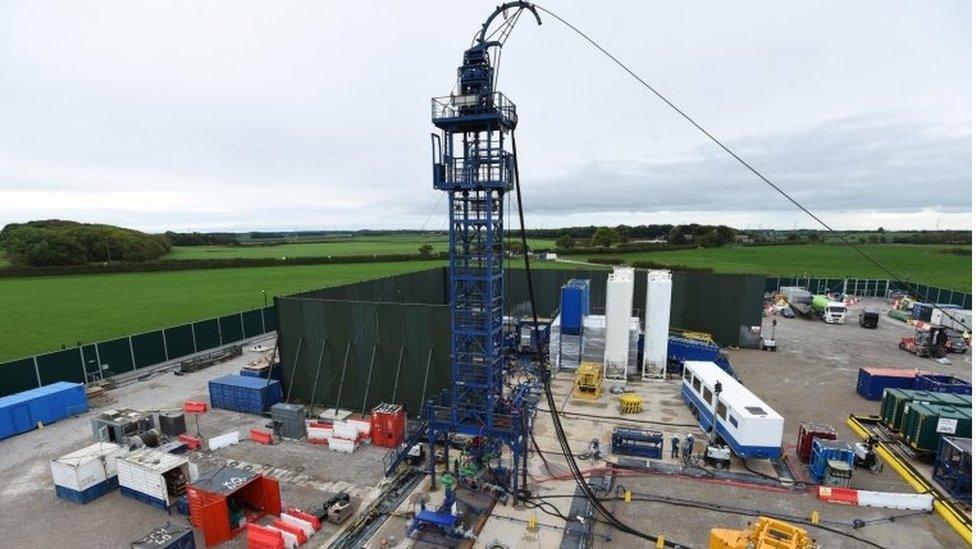
- Published27 August 2019

